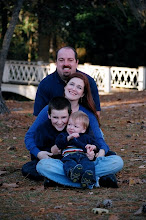My family says I am a sheepdog, or something with a strong herding instinct. From the AKC "The Herding Group, created in 1983, is the newest AKC classification; its members were formerly members of the Working Group. All breeds share the fabulous ability to control the movement of other animals." In "The Way They Work" the reader learns "The way in which a dog works is made up of a combination of a great many factors. Herding often involves a fluid, changing situation. The herding dog was expected to do what was needed according to the situation. Herding breeds developed in different areas in response to local situations and needs. In many cases, the work required versatility. In other cases, there were particular conditions that led to some specialization. Conditions could change over time. Many herding tasks involve the same basics, wherever they take place.
"The Way They Work" also introduces the idea that the way that the animal relates to the handler has much to do with the overall success of the animal. The relationship with my Handler is a topic for a completely separate post!
So, here's why I think I just need livestock. See the description below.
'The Old-fashioned All-around Farm Dog
Generally these farm dogs were loose-eyed, upright workers, relaxed in nature but forceful when necessary. Most commonly they worked in a fairly routine situation with familiar animals, although there would also be times when routine would be broken or unfamiliar animals would need to be handled. They brought the cows in for milking and drove them back, gathered sheep from the pasture and searched for any animals that were lost or had strayed. They might go along with the farm children to watch over cattle or sheep being grazed in unfenced fields, and remain on the job while the children went off to find fun elsewhere! They watched gates that had been left open, drove out the pigs that invaded the orchard and put them back in their place, rounded up the chickens to put them away for the night – any number of tasks that might need doing.
The dog on the family farm not only herded livestock of many kinds, but kept “varmints” under control, played with and “baby-sat” the children, served as a watch and guard dog for property, family and animals. When herding, the dog might be called upon to handle everything from an obstreperous bull or stubborn pigs which might require a forceful manner, to young lambs and poultry which required gentle handling.
With its sense of propriety over the animals and its attachment to its family and farm, the old-fashioned farm dog was often a dual-purpose herding dog and stock guardian. The good general-purpose farm dog, however, could be trusted loose on the farm. It would know the limits of its farm and would not only keep predators, animal and human, away from its territory, but would also distinguish between trespassing livestock and its “own” livestock. If the resident livestock strayed, without being told the reliable farm dog would return them to their proper place.
While herding is generally considered to be based on the canine prey drive, many of these old-fashioned farm dogs showed a tendency to treat the farm animals as subordinate pack members. They would control the movement of the animals, actively herding them when that was needed, keeping the animals in order as necessary, but could also be left among the animals and would not bother them so long as the animals behaved themselves and stayed in the areas where they belonged. Such dogs might even show nurturing behaviors toward very young animals.
The farm dog often received very little formal training but learned its responsibilities as it grew up, receiving its training in the form of general supervision and guidance “on the job.”
I am happy to report that Brandon is soon to be arriving, so between Aiden and Brandon, I should be fine for the next week. And there's also Financial Peace University that will be wrapping upat the end of the month-that's 45+ folks.
Did I say I was bored? Never mind.


No comments:
Post a Comment